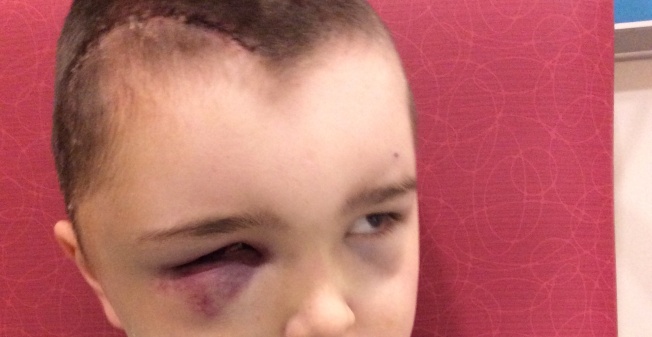
Back in May my non verbal ten year old son went for a routine MRI scan because he has a genetic condition called Neurofibromatosis Type 1 (NF1). What happened next changed my entire family. A few weeks later I had a phone call from my son’s neurologist to say they had found a brain tumour and after discussions with a neurosurgeon and oncologist he had major brain surgery a few weeks later. My son was admitted to hospital and underwent a six hour craniotomy operation for a brain tumour biopsy. He had a long recovery.
Results came back that his tumour was ‘benign’ so I looked up the word and breathed a huge sigh of relief. According to the dictionary that meant his tumour was ‘harmless, innocent, superficial and innocuous’. Fantastic!
Except it wasn’t.
As his surgeon later explained it actually doesn’t matter wether a tumour is benign or cancerous as, especially in the brain, they are just as dangerous and cause major effects.
My son may need chemotherapy at some point. He may need further surgery. His tumour caused him to be epileptic, vomit, have visual difficulties, lose balance, be very lethargic, and be very unwell.
Benign isn’t fine and never will be.
We need to rethink urgently what benign means.
Having a benign tumour isn’t fine for Joe who has had two years of chemotherapy and is now almost blind.

Having a benign tumour isn’t fine for Tayen who is now on her fourth round of chemotherapy, epileptic, and is completely blind just to name a few of her very complex needs.

Having a benign tumour isn’t fine for Evia who is also blind and has had two years of chemotherapy.

Having a benign tumour isn’t fine for Logan whose tumours in his neck, throat, heat and arms are so aggressive surgery is no longer an option leaving him with lung disease, epilepsy, learning difficulties, scoliosis and hypotonia.

Having a benign tumour isn’t fine for Ella who has endured major surgery on her spine.
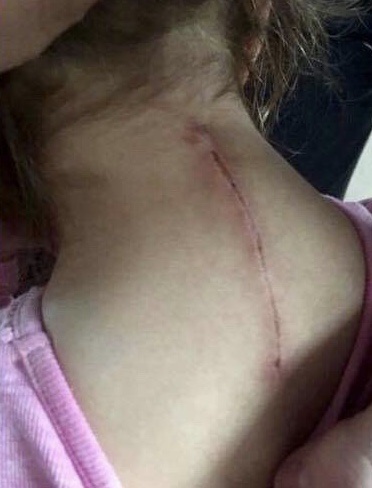
Having a benign tumour isn’t fine for Ronnie who has had chemotherapy and now has vision loss.

Having a benign tumour isn’t fine for Isobel who has a tumour in her head mouth and cheek and is blind in one eye and facially disfigured.
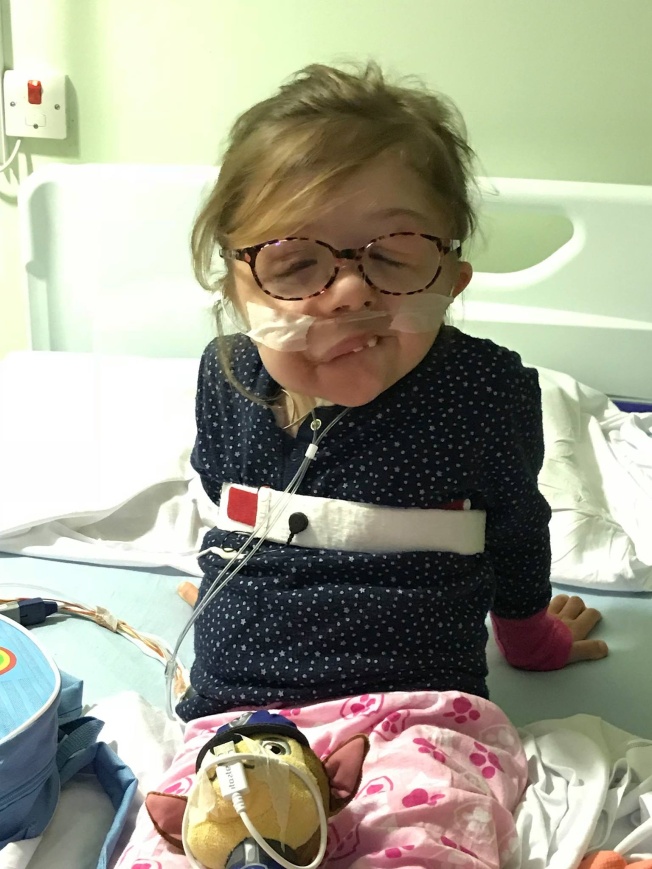
Having a benign tumour isn’t fine for Harley who has had two operations, 7 general anaesthetics, 5 MRI’s and chemotherapy.

Having a benign tumour isn’t fine for Jon-Paul who is in chronic pain daily with a tumour on his ankle.

Having a benign tumour isn’t fine for Heather who has had her leg amputated below the knee die to a tumour.
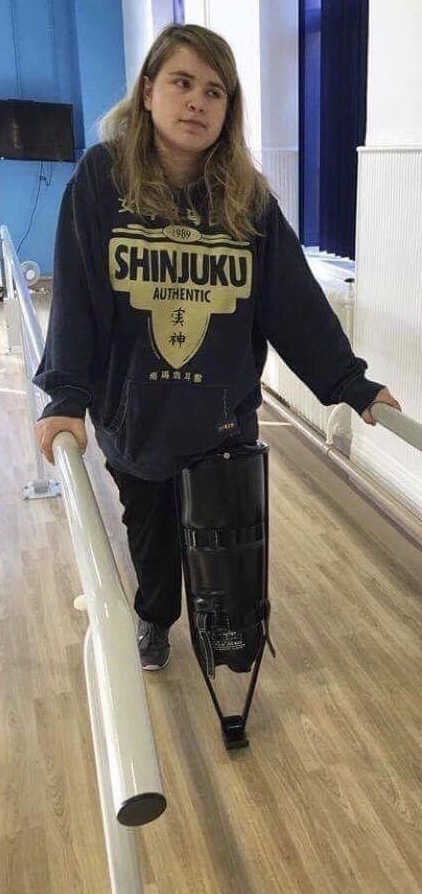
Having a benign tumour isn’t fine for Ruby who has endured surgery and 18 months of chemotherapy for a brain tumour.

Having a benign. Tumour isn’t fine for Dan who has had chemotherapy, sepsis and has vision and hearing loss.
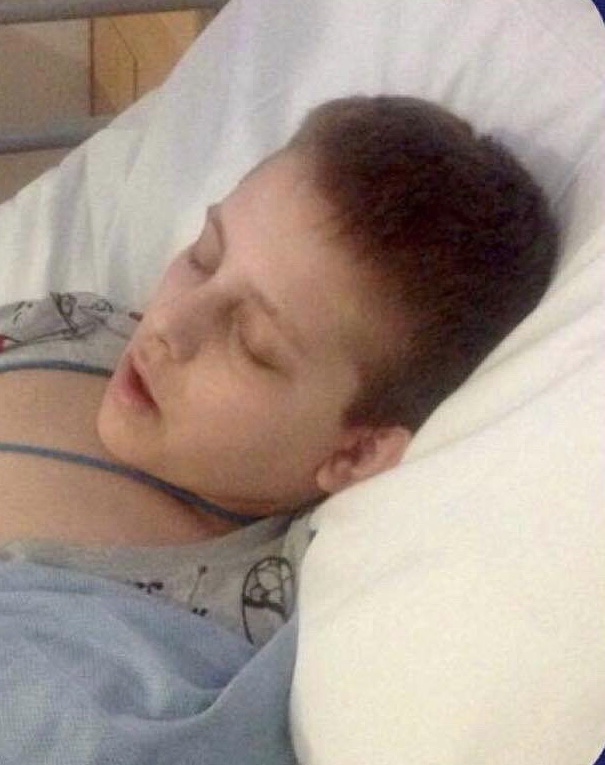
Having a benign tumour isn’t fine for Harvey who needed brain surgery.

Having a benign tumour isn’t fine for Kiki who has had chemotherapy for a brain tumour.
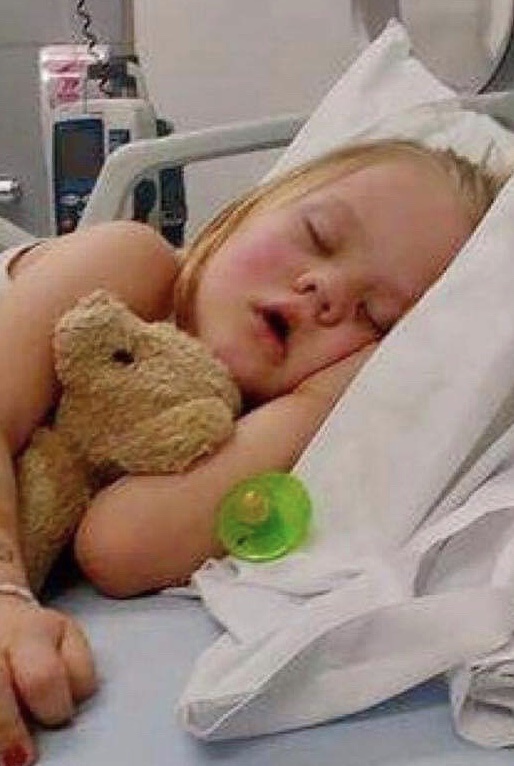
Having a benign tumour isn’t fine for Kearyn who has vision loss.
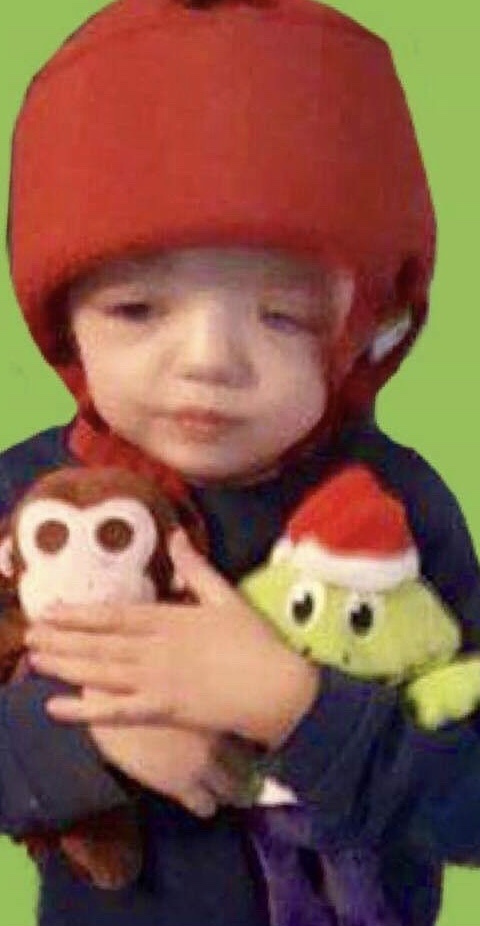
Having a benign tumour isn’t fine for Teagan who also has had chemotherapy as vision loss.

Having a benign tumour isn’t fine for Elayna who is having brain surgery next month.

Having a benign tumour isn’t fine for Shay who has had two brain tumour surgeries so far.

And finally having a benign tumour isn’t fine for Evie who has operations to remove her tumours resulting in a facial nerve being severed and loss of hearing.

Are any of these cases ‘harmless, innocent, superficial and innocuous’? Is that how you would describe what my families and all these other families have been through and continue to go through?
Tumours related to NF1 May be benign but that doesn’t mean we can ignore them. Benign tumours cause pain, damage, deformities, disabilities and can kill.
For the sake of my son and all the thousands of other families living with benign tumours, wether NF1 related or not please can we redefine what benign means and stops giving the impression that benign tumours are ‘fine’.
They are absolutely NOT fine.
Please support the Childhood Tumour Trust campaign using the hastag #BenignIsNotFine
For more information please see http://www.childhoodtumourtrust.org.uk
Thank you.
 Where does it hurt?
Where does it hurt?